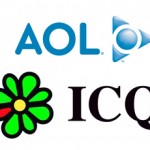 Copenhagen, Denmark — As world leaders gather in Copenhagen, planning to thrust engagement and support of actions against climate change, Software behemoth, Microsoft rolled out a new Web-based applications designed to highlight environmental problems during the COP 15 United Nations Climate Change Conference in Copenhagen, which runs through Friday.
Copenhagen, Denmark — As world leaders gather in Copenhagen, planning to thrust engagement and support of actions against climate change, Software behemoth, Microsoft rolled out a new Web-based applications designed to highlight environmental problems during the COP 15 United Nations Climate Change Conference in Copenhagen, which runs through Friday.
Microsoft has rolled out two new applications designed to help individuals analyze the climate debate and manage their carbon footprints. Microsoft is operating with the European Environmental Agency (EEA) to use its Bing Maps, Silverlight multimedia technology and Azure cloud platform to show how climate change is affecting certain regions in Europe.
Developed in collaboration with the European Environment Agency (EEA), the Environmental Atlas of Europe “a digital application for educating citizens about climate change,” is an integral part of the Redmond company’s vision to leverage technology in order to tackle environmental challenges, Microsoft said.

Accordingly, the Atlas is developed to open up access to information on climate change accompanied by accurate climate change data.
“As the world’s renowned software company, we believe technology will play a vital role against tough issues facing the world like climate change,” said Rob Bernard, chief environmental strategist at Microsoft. “With the help of our Bing Maps visualization technology, Atlas enables people to connect to the issue by visualizing the changes occurring to our world today and provides another tangible example of how technology can contribute.”
The Environmental Atlas of Europe website, will inform users about climate-change histories and interesting projects, such as wine farmers in the Tuscany region of Italy who run a carbon-negative farm to a city in Denmark that uses 100 percent renewable energy, said Bert Jansen, technology lead for the EEA.
“It is strange that not everybody is aware of these kinds of initiatives,” Jansen said. “I think it is important that good initiatives get the attention that they deserve.”
Meanwhile, the company’s also launched another Web site called Bend the Trend, “an online global program where people can pick from up to 45 pledges on how they can reduce their impact on the environment. Pledges, which are marked on an interactive Bing map, include eating less meat, turning down thermostats and recycling all paper”.
The applications were unveiled Sunday at the United Nations 15th Climate Change Conference (COP15) by the European Environmental Agency.
Paul Lloyd Robson, Microsoft’s Environmental Sustainability lead for the Nordic region, said the two applications are perfect examples of a key message Microsoft is introducing at the conference — that the powerful collection of environmental information and technology can educate, advise and empower people to address climate change.
“The governments of the world understand they cannot do it all alone,” Robson said. “They need industry and NGOs (non-governmental organizations) and their citizens supporting them because we are facing such a momentous challenge.”
The Environmental Atlas of Europe offers nine case studies about how different people across the Continent are reacting to climate change, a concept that believes mean temperatures across the Earth are on the rise.
Jacqueline McGlade, executive director of the EEA, mentioned that the atlas brings to life the impact climate change is having on real people. “Users can pinpoint and select stories from locations shown on Bing Maps, zoom into the local area, see individuals telling their stories, and explore ways in which environmental change is affecting other parts of that region,” she said.
Microsoft sent a delegation of climate and technology experts to COP15 in an effort to demonstrate IT’s role in the nascent climate change industry. The conference, in Copenhagen, runs from Dec. 7-18.


